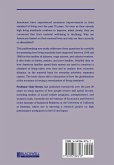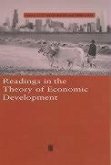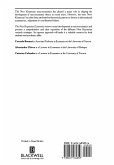Competition between companies tends to be beneficial for the general public, but is this also true for competition between states in a world with global financial markets, low transport costs, and increasing migration? In this book, Sinn provides a solid economic analysis of the competitive forces at work and addresses how they affect public goods provision, income redistribution, environmental policy, safety standards, banking regulation and even competition policy itself. Identifying the deficiencies of the competition between systems, the author develops a number of correcting policy measures ranging from specific harmonization proposals to rules that would help make competition work.
Hinweis: Dieser Artikel kann nur an eine deutsche Lieferadresse ausgeliefert werden.
Hinweis: Dieser Artikel kann nur an eine deutsche Lieferadresse ausgeliefert werden.
"Professor Sinn offers a sweeping view of the future globaleconomy, where states compete for capital in a race for growth. Oldpolicies, fiscal and structural, will be revised to attractproductive resources and to prevent their exit. Once more theauthor joins lucid exposition and analytical rigor in a splendidpiece of contemporary economics."
--Richard Musgrave, Harvard University
"The authors of competitive interactions among and withingovernments and nations requires a breadth of perspective andlearning not often found among today's hyperspecialists.Hans-Werner Sinn has thought long and written extensively on thesematters. This book provides a concise introduction to theseimportant issues, a compelling demonstration that economics has alot to say about them, and a glimpse of the large analytical tasksbeyond the horizon."
--David E. Wildasin, University of Kentucky
--Richard Musgrave, Harvard University
"The authors of competitive interactions among and withingovernments and nations requires a breadth of perspective andlearning not often found among today's hyperspecialists.Hans-Werner Sinn has thought long and written extensively on thesematters. This book provides a concise introduction to theseimportant issues, a compelling demonstration that economics has alot to say about them, and a glimpse of the large analytical tasksbeyond the horizon."
--David E. Wildasin, University of Kentucky








